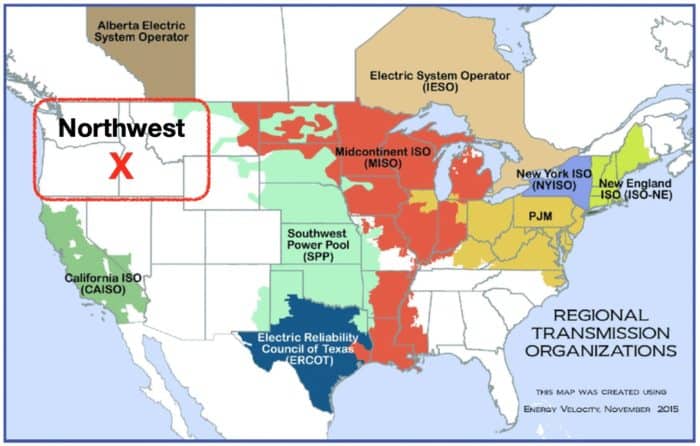Quick Fact: Surge Protection
In the electric industry, power surges are unavoidable. However, just like with home security systems, there are things we can do to protect us from surges, though never fully. The main task of a surge protector, also called a surge suppressor, is to protect electronic devices from “power surges.” A power surge, or transient voltage, is an increase in voltage significantly above the designated level in a flow of electricity. In typical home/office wiring, the standard voltage is 120 volts; if voltage rises above 127, the surge protector helps protect your electronic device.
If the surge (increase that lasts 3+ nanoseconds) or spike (1-2 nanoseconds) is strong enough, it can cause damage on your device. Just as too much water pressure on a hose will cause it to burst, the same happens when too much electrical pressure runs through a wire, but in this case the wire heats up. Even if it doesn’t immediately break your device, it can wear it down over time.
CAUSES – Although many people think lightning causes most surges, in reality, about 80% of all power surges are created by electronic equipment inside your home (air conditioners, refrigerators, power tools) because such high-powered devices use a lot of energy to turn on/off, and can gradually be worn down over time. You might be surprised to learn that only 15% of power surges are caused by lightning strikes. Other sources of power surges include phone & cable lines, faulty home wiring, utility equipment problems, and downed power lines. The system of hardware and software that brings power to your home or office is very complex. Although reliable, the system is not fail safe. Power surges are unavoidable, especially when you consider the many unpredictable factors such as weather, animals, birds and autos hitting poles.
PROTECTION – When choosing a surge protector (also known as surge suppressor) you have many different brands to select from but remember these key points:
- These devices are not lightning arrestors; they will not survive close lightning strikes.
- Be sure to consider how surges can enter the home through phone/cable lines; protect these too.
- We realize this isn’t always practical, but, the best and only sure protection is to isolate (unplug) your device.
WHAT TO LOOK FOR IN SURGE PROTECTION
- UL 1449 LISTED. Conforms to Underwriter Laboratory’s standard UL 1449 for transient voltage surge suppressors (TVSS). UL 1449 as a “power tap” is not sufficient.
- PEAK SURGE CURRENT RATING OF 39,000 amperes or more. Higher is better. Sometimes is called Maximum Transient Current or Maximum Surge.
- LET-THROUGH VOLTAGE OF 330 VOLTS OR LESS. The lower the let-through voltage, the better the surge supressor. UL has established the 330-volt let-through as the benchmark.
- JOULE RATING. A higher number indicates greater protection. For better protection, look for a rating of 420 joules or more. For more expensive equipment go for higher joule rating.
- OUTLET FOR EACH PIECE OF EQUIPMENT.
- INDICATORS. Status or warning lights to indicate that the device is working (not just on). Sound alarm to indicate surges.
- WARRANTIES. Warranty on surge suppressor should be at least 5 years. Check your connected equipment warranties.
- NOISE ATTENUATION. Electro-Magnetic Interference (EMI) and Radio Frequency Interference (RFI) are disruptions on the smooth AC power line sine wave. This noise on the power line can be caused by lightning, generators, radio transmitters or even household appliances. This noise shows up as glitches or errors on computer systems, or “snow” on a TV. A surge protector with this feature will reduce or eliminate this noise.
FAQs
WHAT IS A SURGE?
A surge occurs when the power line voltage goes higher than nominal, and stays there longer than 10 milliseconds.
WHAT CAUSES POWER SURGES?
Although many people think lightning causes most surges, in reality they’re one of the less common causes. In fact, about 80% of all power surges are created by electronic equipment inside your home (air conditioners, refrigerators) because such high-powered devices use a lot of energy to turn on/off and can gradually be worn down over time. You might be surprised to know that only 15% or less come from unexpected lightning strikes. Other sources of power surges include phone and cable lines, faulty home wiring, utility equipment problems, and downed power lines. The wires and transformers that bring power to your home or office is quite complex, having many possible failure points, and many potential errors that can start an uneven power flow. As mentioned, power surges are unavoidable, especially when you consider the many unpredictable factors such as weather, animals, birds and autos hitting poles.
CAN THESE SURGES CAUSE DAMAGE?
Yes. Today’s computerized appliances and electronics can be damaged or destroyed by over-voltage surges or spikes. Large appliances like air conditioners or refrigerators are less
susceptible, but can be damaged as well.
CAN A SURGE HARM MY EQUIPMENT IF I’M NOT USING IT?
Yes. Many electrical devices have electronic timers, clocks, or remote controls which remain in operation even when it is not in use. Also, some appliances cycle off and on at random like air conditioners, water heaters, pumps, or refrigerators and they could be on during a surge.
WHY DO I NEED SURGE PROTECTION?
There are several reasons why power quality has become such an important issue: today’s computer chips are far more dense than they were even a few years ago, and subsequently, much more sensitive to even slight surges. Clock speeds, or operating frequencies, have increased and reached the frequency range of high-voltage transients. Slower processors ignored them, but high-speed processors may actually interpret a transient as a command sequence. Most homes and offices are using more pieces of equipment that draw electricity than ever before. Each time an electric device is turned on, transient voltages may be generated. More microprocessor technology is being used than ever before in household appliances such as refrigerators, washers, dryers and dishwashers.
WON’T MY CIRCUIT BREAKERS PROTECT MY EQUIPMENT?
No. Circuit breakers are only designed to protect against over cur-rent, not a voltage spike or drop.
CAN I PROTECT MY WHOLE HOUSE?
Yes. Whole-house protection can provide surge suppression at your meter and protect your whole house from power surges originating outside the house. Electrical panel protection provides surge suppression for all equipment on an individual circuit within your house. Contact a licensed electrician for more information.
DO THESE SUPPRESSORS HANDLE ALL VOLTAGE PROBLEMS? Probably not, though they do handle the most frequent and destructive ones. More sophisticated technologies, i.e. hybrid power conditioners and uninterruptible power systems, are available to handle complex power problems.
WHAT IS THE PURPOSE OF THE PHONE JACKS ON SURGE SUPPRESSORS?
Some of the surge suppressors incorporate protection circuitry for telephone equipment. There are two sockets on these products. By plugging a phone line through the sockets, you can minimize the effects of a surge coming into your equipment through the phone line. FAX machines, cordless phones and answering machines are especially sensitive, and computers with internal modems can be completely destroyed by spikes on the phone line.
WHAT CAN’T A SURGE PROTECTOR DO?
It can’t protect you from power outages, black outs or brown outs. It can’t protect your equipment from nearby lightning strikes.



